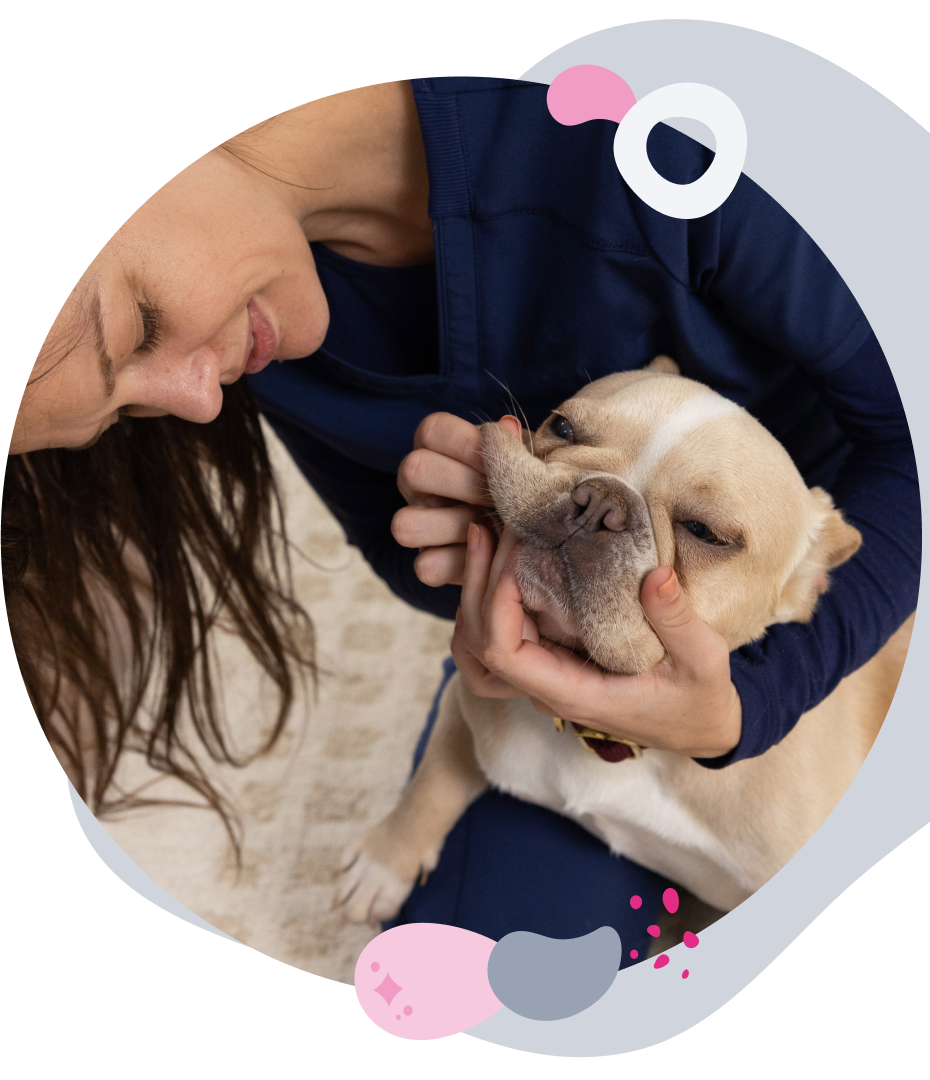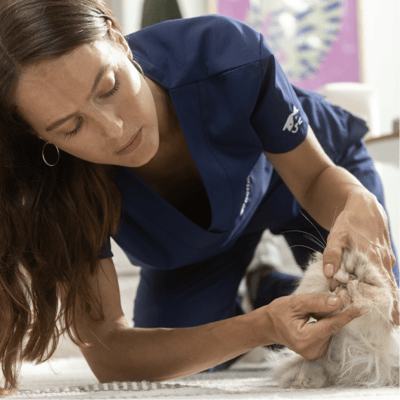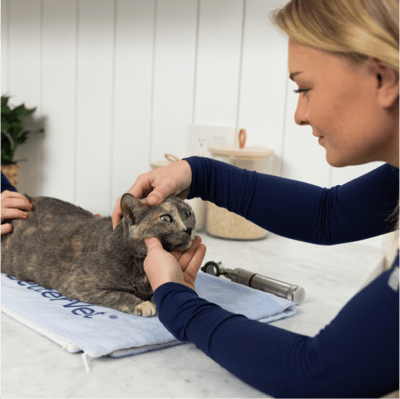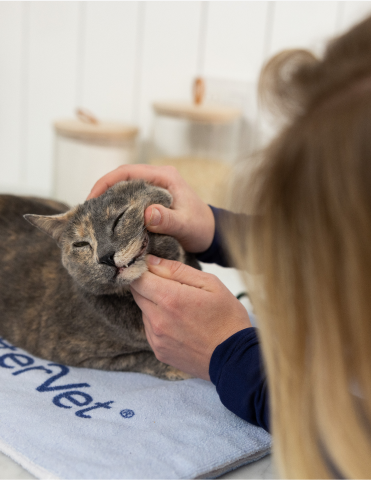Why BetterVet?
Our mobile veterinarians examine pets in their favorite spot - a comfy couch, a cozy pet bed, or even your lap! See how we work to keep pets relaxed and happy at home.
Pet dental care is a key component of your dog or cat’s preventative veterinary care. Regular dental checkups and cleanings can prevent long-term problems and dental disease before they start!
Note: Depending on your location, pet dental cleanings are performed in the BetterVet vehicle, on-site location, or at one of our partner hospitals. An in-home visit is required within two months of the date of your pet’s dental procedure, or when it is recommended by your veterinarian.

Over time, plaque and bacteria can build up in your dog or cat’s mouth, impacting their teeth, gums and overall health. Early detection of dental issues is an important part of our commitment to treating your whole pet.
Our dental care process begins at home with a dental exam during their routine Wellness Exam. If a dental cleaning or other dental procedure is recommended, our Fear Free® certified veterinary professionals will make sure your pet remains as calm and comfortable as possible.
Our dental services are designed to be a stress-free experience for both you and your pet. We approach dental care in the same way as our other services, with a caring and gentle touch.

During a nose-to-tail wellness physical examination, your veterinarian will perform a thorough check of your pet’s teeth and gums and make any necessary recommendations.

A pet dental cleaning includes full mouth x-rays and anesthesia, followed by cleaning and polishing. Sometimes during a dental cleaning, your doctor may uncover unforeseen problems which require additional services or medications.

Your veterinary team will discuss any additional dental services your pet might need and will provide a plan to support your pet’s dental health at home.
During a scheduled dental cleaning, your veterinarian will take a closer look at your pet’s dental health through x-rays (also called dental radiographs) and will complete a thorough cleaning and polishing. Any additional services your pet may need will be discussed with you.
Before the start of your pet’s dental procedure, we will typically administer pre-medication to help calm and sedate your pet and provide pain control. Anesthesia is also necessary before we begin your pet’s dental cleaning as it allows us to take X-rays, conduct an examination of your pet’s teeth, including under the gum line, and thoroughly clean your pet’s teeth.
During a professional dental cleaning, your veterinarian will complete a scaling of your pet’s teeth to remove plaque and tartar both above and below the gum line.
Typically the final step of your pet’s dental appointment, your veterinarian will polish and smooth the surfaces of your pet’s teeth to help protect the enamel and leave them looking shiny and clean!
In certain cases, a dental issue is revealed during an exam or cleaning that may require surgical intervention, most commonly tooth extractions. Your veterinarian will communicate with you and together, you can make the best plan for your pet.
If your pet underwent a procedure beyond a routine cleaning or is expected to be in some level of discomfort, we will ensure that we provide any prescriptions your pet may need.

My cat had dental surgery and everything went so smooth, I’m so happy with how everything went. They did the surgery in their van right outside our house so no transportation required which my cats absolutely hates. The best part is he got to come right back inside after and recover in the comfort of our home. Highly recommend if your pets hate going to the vet!!
How often your pet should have a dental cleaning depends on their individual needs, but after examining your pet’s teeth during a Wellness Visit, your veterinarian will make a recommendation based on your pet’s needs.
Your pet will need to be seen for a Wellness Exam within two months of a dental cleaning for pre-operative blood work and to make sure they are in good health. If your pet requires any other steps to get ready for their dental appointment your veterinarian will let you know ahead of time.
Skip the traffic by booking a mobile vet visit with one of our trusted veterinarians. We bring full-service vet care to you!